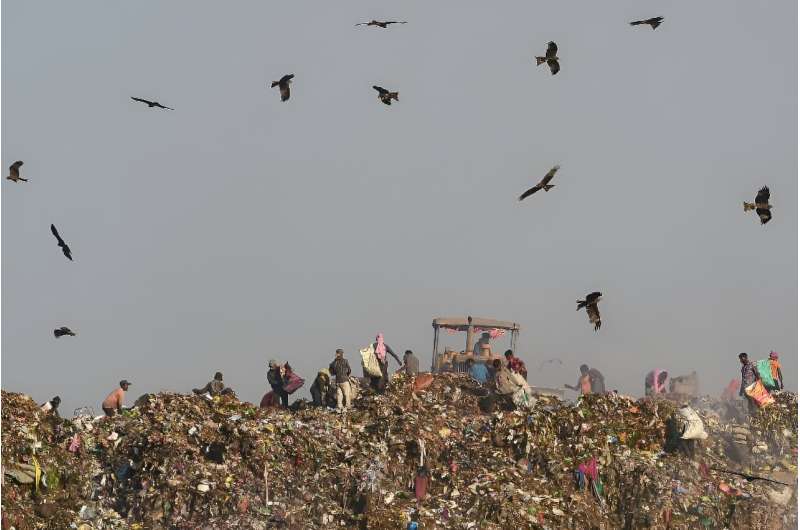
The world generated 2.3 billion tonnes of municipal waste last year and the pile of trash is set to grow another two-thirds by 2050, the UN said Wednesday, warning of devastating costs for health, economies and the environment.
Without urgent action, the waste mountain is expected to grow to 3.8 billion tonnes by the middle of the century, according to the estimate, which exceeds previous forecasts.
The world’s landfills are a major source of emissions of the potent greenhouse gas methane, which is released when organic waste like food scraps decompose, while transporting and processing rubbish also generates planet-heating carbon dioxide.
“Indiscriminate waste disposal practices can introduce hazardous chemicals into soil, water bodies and the air, causing long-term, potentially irreversible damage to local flora and fauna, negatively impacting biodiversity, harming entire ecosystems, and entering the human food chain,” the report said.
It said burning trash can release so-called “forever chemicals” into the air, with the potential for significant harmful effects on human health and the environment.
The report added that research suggested up to a million people die every year as a result of illness related to waste mismanagement, including diarrhoea, malaria, heart disease and cancer.